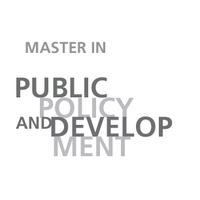Lines of research
Line 1: Development Strategies
The development strategies are a result of development experiences and of current economic, social and political institutions. They greatly depend on the historical moment of each Latin American region. From the beginning of the 1930s to the end of the 1980s a centrally planned development model was implemented in the region and it turned out to be inefficient and incompatible to the advancement of democracy and contrary to the participation of social institutions and organizations, as well as to the participation of civil society itself. Currently, development demands a decentralization of decisions and a greater social participation, which means to promote freedom of initiative in manufacture, distribution and consumption, and also to promote associations and institutions where society is actively participative. The study of development strategies will result in the resolution of problems concerning the inefficient practice of public policies, specially their elaboration and implementation, as well as in the outcome and forms of exercising the political power, involving issues related to distribution and redistribution of resources, social conflicts which are inherent to the decision processes and the sharing of social costs and benefits. In this perspective, development is comprehended as an improvement in the society’s quality of life, because people are the means through which development is achieved and also the final goal for aiming at it. Development implies harmony between quantitative and qualitative indicators, social justice and balance concerning time and space, and this achievement shall greatly depend on the rationality of policy makers and society, as well as on their capacity of social action. In this line of research, the classically approached issues by the development theories: the standard idea, the allocations of production factors and their influence on economic potential; however, the strategy herein suggested is to look at these subjects in a way that emphasizes their specificities, welcoming the differences that are found, not as a result of a lower level of economic evolution, but as characteristics that these economies have which can (and must) be considered when making an original/regional plan for a development strategy. In addition to that, we intend to develop studies that incorporate the consequences of acting based on rationalities that go beyond commercial ones, but which impact the economic and social systems, as well as studies about the impacts of social activation in the process of development. Finally, in this line of research and its field of concentration, development is seen in its broader definition which includes qualitative issues, namely social justice in the social and spatial transformations of Latin American regions.
Line 2: Public Policy and Society
In almost every Latin American region, it is common to observe the pressing need to the intervention of the State, with adequate public policies, in order to overcome human and social deficiencies and necessities, and also the problems resulting from the local development processes. This represents a theoretical and methodological challenge, specially in societies in which there is a concentration of wealth due to the use of imported policy models which prevent development to happen. In Latin America, public policies are the main forces of action by the State, which leads us to some questions about their legitimacy and capacity to produce the necessary effects for the promotion of development in these regions. In an increasingly globalized environment and in a society that becomes more and more anxious for advancements regarding integration and better life conditions, public policies must deal with social actors and institutions which are stronger and stronger, and they also must be able to deal with a civil society that is diverse and organized with distinct demands. This poses a great challenge to the elaboration and implementation of policies. In this context, the will to study the relations between state agents and other non-state actors from the market or civil society in planning, producing and implementing public policies grows substantially. This has been growing in the region since the 1990s, with the consolidation of democracy and the expansion of the decentralization process, which implies a relatively fast process of transferring resources and responsibilities from one state administrative body to the other (at a federal, state, provincial, municipal or local level), as well as from them to other civil society agents and organizations.



